Motorhomes
Tonke Campers: Old is new again
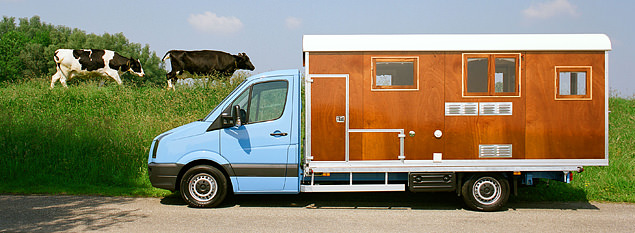
The RV industry is in crisis. Could salvation come from the past — with a return to the craftsmanship employed by companies like Holland’s Tonke Campers?
As you’ve probably guessed, Tonke Campers are not injection-molded by machines. They’re not made in giant factories owned by conglomerates. Instead, Tonke shows how you can marry ‘oldtimer’ materials and aesthetics with thoroughly modern fittings.
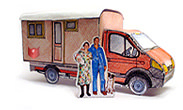 All Tonke Campers are hand-built the traditional way by craftsmen. The two- and three-berth interiors are timeless and classy: they’re inspired by gypsy caravans, and the classic yachts created by Dutch boatbuilders in the 1920s.
All Tonke Campers are hand-built the traditional way by craftsmen. The two- and three-berth interiors are timeless and classy: they’re inspired by gypsy caravans, and the classic yachts created by Dutch boatbuilders in the 1920s.
Gorgeous polished mahogany fittings provide a pleasing contrast to the teak floors. The sinks are porcelain, and the faucets are chrome. The windows are flat, clear and bright. You can specify solid wood doors and enjoy the view through safety glass, not molded or tinted plastic.
There’s a built-in shower and an environmentally-friendly vacuum toilet. The water tank holds 126 liters and there’s also a ‘combi’ boiler for hot water and heating. A large fridge freezer keeps food cool; you cook it using a very solid stove with burners fed by not one, but two gas cylinders.
The overall effect is unusually authentic: it’s rustic luxury. And we can’t imagine a better motorhome for a leisurely meander around Europe, from Holland to Tuscany — with perhaps a stop on the shores of Lake Como. And then, when you get home, you can take the camper unit off the van chassis in 15 minutes. You can put the Tonke’s living area to good use all year round, as a self-contained guest room or office.
 Tonke is the creation of Dutch documentary maker Maarten van Soest (pictured) and based in the small town of Wagenberg, around 100 km south of Amsterdam. The company produces two models, the Explorer and the Fieldsleeper, which both meet the EURO 4 emissions regulations.
Tonke is the creation of Dutch documentary maker Maarten van Soest (pictured) and based in the small town of Wagenberg, around 100 km south of Amsterdam. The company produces two models, the Explorer and the Fieldsleeper, which both meet the EURO 4 emissions regulations.
There are two basic configurations for each model. One gives you a slim but very useful storage slot, accessed from a door right behind the cab. It’s big enough to hold two or three pushbikes — yes, very Dutch — or a baby’s pushchair.
The dinette converts to a double bed, and because it’s at the back of the van, you can leave the doors open and enjoy the feeling of (almost) sleeping under the stars.
The alternative layout offered by Tonke deletes the storage cupboard to create a larger living area, with a permanent double bed immediately behind the cab. And because these motorhomes are hand-made, the opportunities for customization are virtually limitless.
The Explorer is based on the Renault Master van, with a six-speed stick shift and a 2.5 liter diesel with 260 Nm of torque. The longer Fieldsleeper model sits on a VW Crafter or the identical Mercedes Sprinter van chassis. That gives you a range of engine options up to a powerful V6, plus 4×4 if necessary. This is good news for customers in distant lands; Tonke just ships the unit and the steel platform which supports it. You buy a Sprinter at your local dealer, and you have no trouble with car import regulations or huge shipping costs
Although the Tonke is hand-built, it is not astronomically expensive. Prices start at €69,800 ($95,000) for the two-berth Explorer and top out at €85,017 ($115,000) for the Fieldsleeper. If you buy direct from the company there’s a substantial discount on these figures, and you get a thorough warranty covering various parts from two to six years.
We’re convinced, but if you’re not, you can rent a Tonke to try it out. It’ll cost you between €495 ($670) and €920 ($1,250) per week, depending on model and season. (This is a pretty good deal if you compare it to the cost of renting a large sedan in Europe.) The rental campers are booked up for the rest of 2008, but there’s still availability in 2009.
We’re betting that the Tonke will be a success. Around the world, factories squirting out identikit plastic motorhomes are shutting down, but Tonke subverts Brooks Stevens’ concept of planned obsolescence. It’s obsolete already, in the best possible way, and will mature rather than date.
There’s an heirloom aspect to this RV, and in these uncertain times, there’s something reassuring about that.
See also:
Another blast from the camper past comes with VW’s potential resurrection of the iconic Microbus. If you prefer travel trailers, check out our online guide to The 7 Essential Airstream Websites.
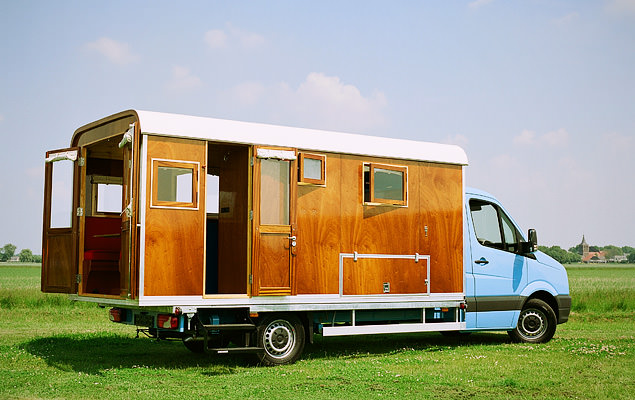
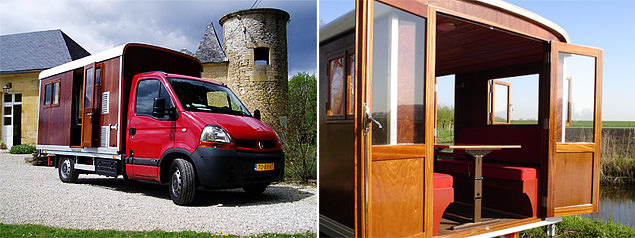
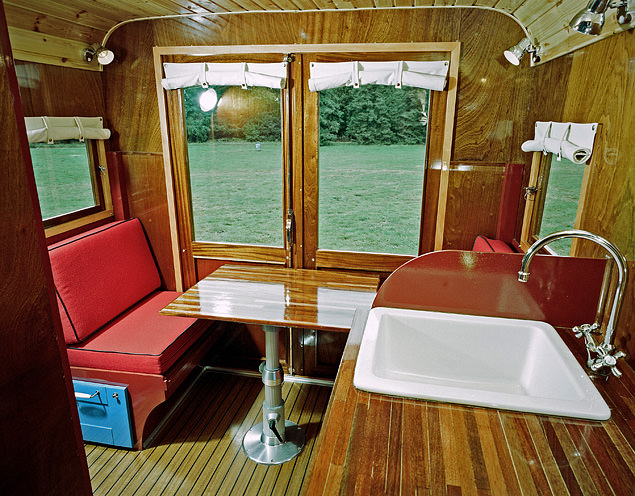
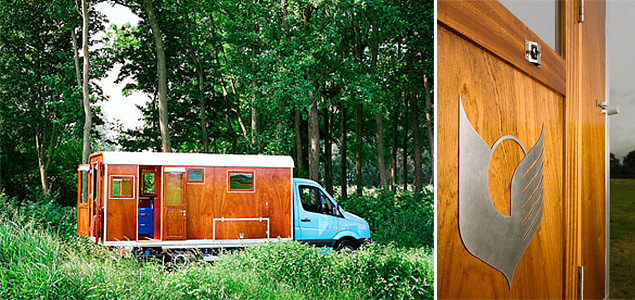
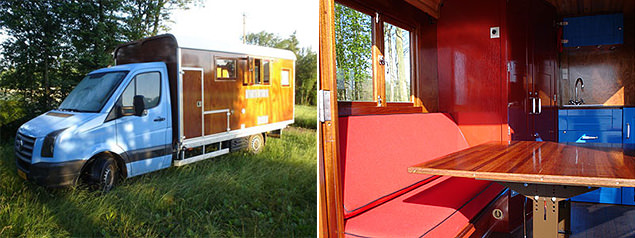
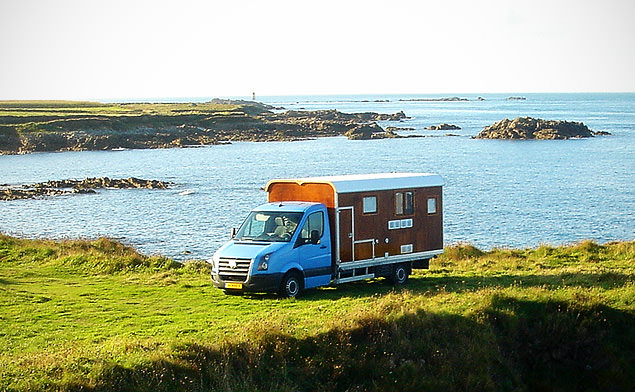



Wow those are really cool. I wish they had them here in the US. Keep up the good work.